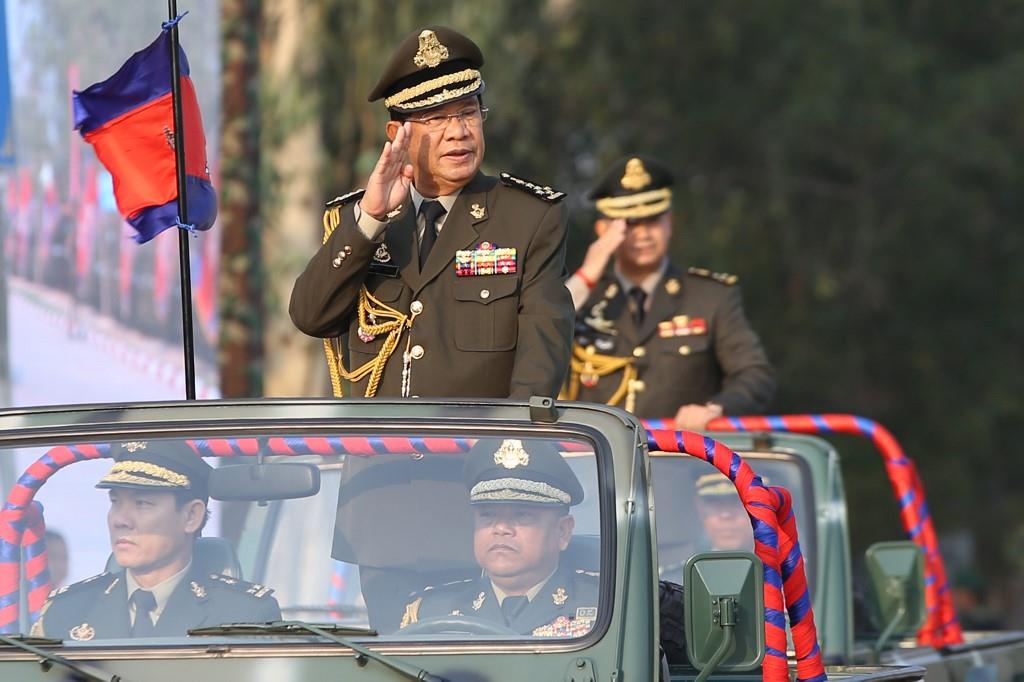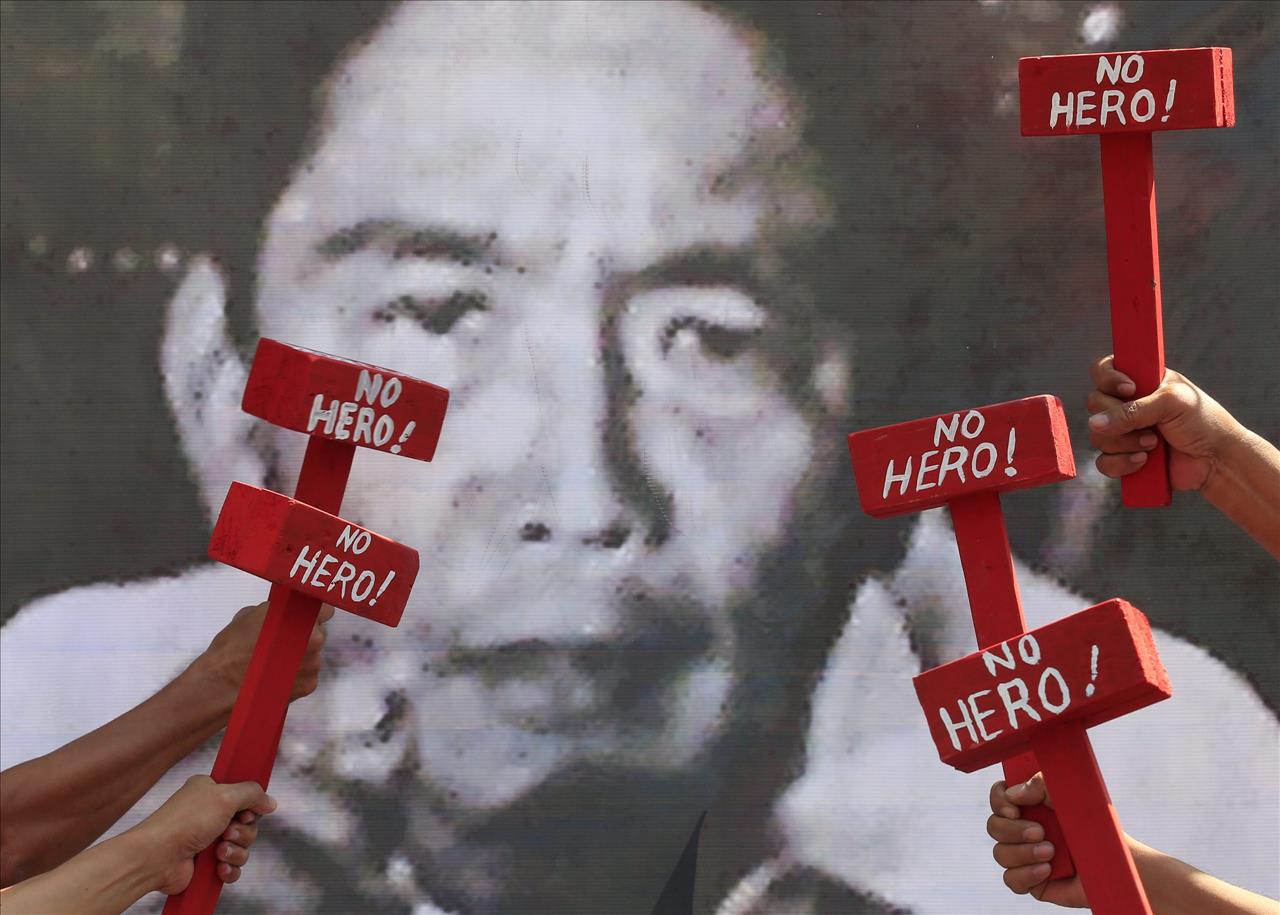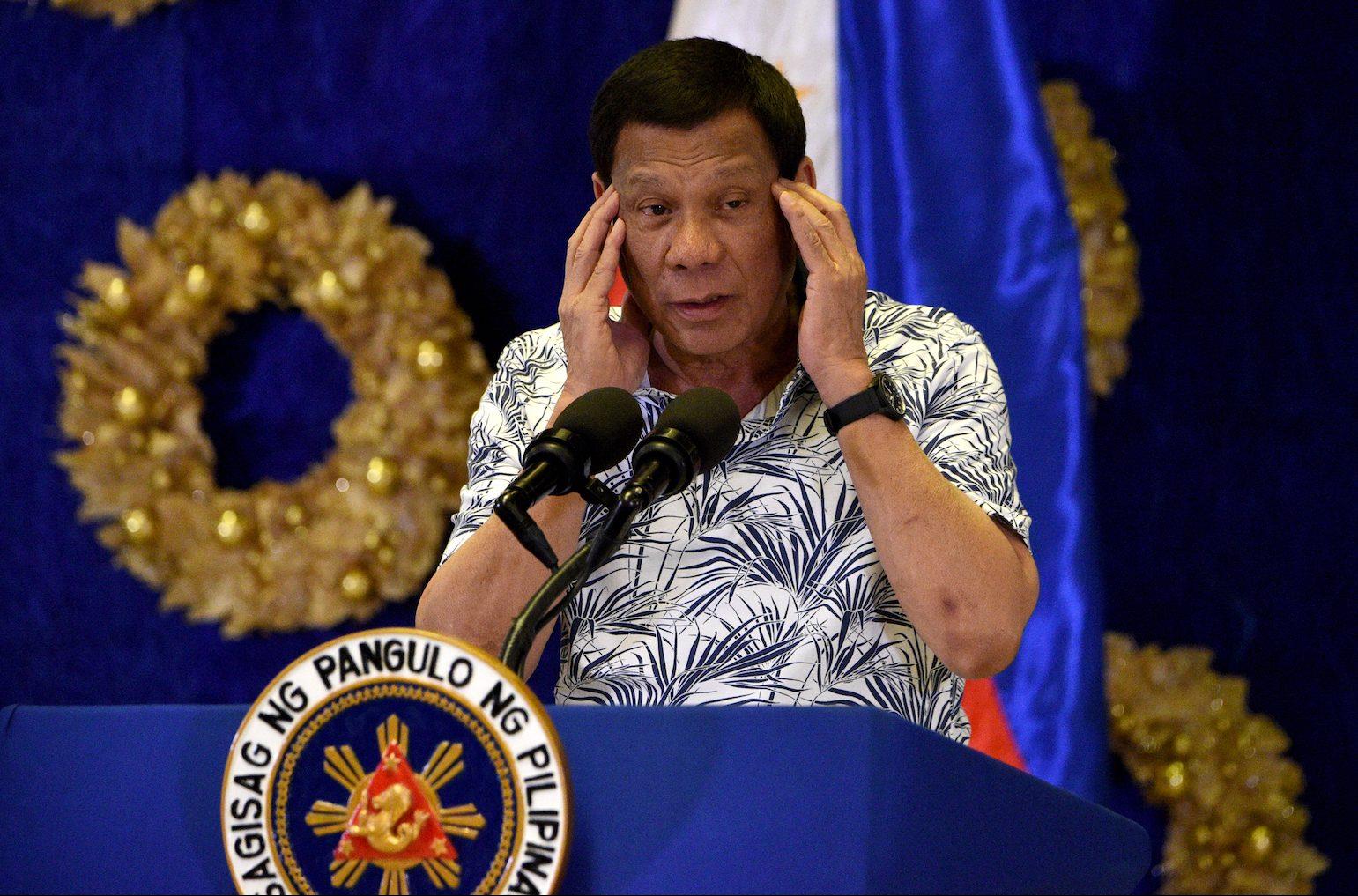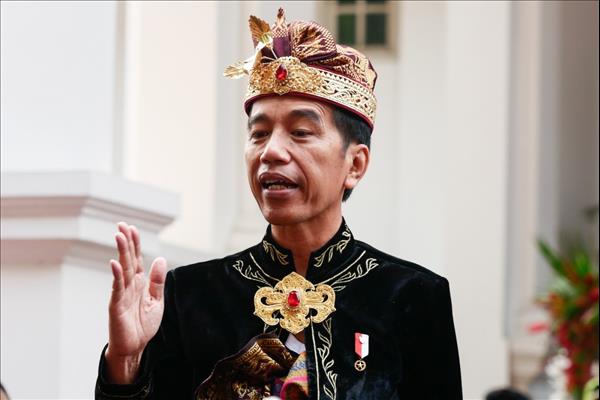
Asia's democrats testing their term limits
Joko Widodo recently sought to dampen speculation that he could try to amend the constitution to seek a third term as Indonesia's president when his second term ends in 2024.
For several months senior government officials and political bigwigs have been recommending a constitutional change to remove the two-term limits on presidents that has been in place since 1998.
Coordinating minister Luhut Binsar Pandjaitan, the so-called“minister for everything,” claimed the Indonesian public supported this, despite several polls showing otherwise.
But at a Cabinet meeting this month Widodo reportedly tried to put an end to“rumors circulating among people that the government is trying to postpone the election or speculation about the extension of the president's tenure or a related third term.”
His cabinet“agreed” that the next presidential election will be held on February 14, 2024, as it should be, he stated, although he was less clear about whether talk of changing the country's two-term limits for presidents had also been shelved.
Before 2021, there was much speculation whether Rodrigo Duterte, the Philippine president, who is beholden to a single six-year term in office, would try to amend the constitution to be allowed to stand for re-election. That didn't materialize.
But in January Aurelio Gonzales Jr, a representative, filed a petition to amend the term limits, which also restrict senators to two 6-year terms, and representatives to three 3-year terms. The same rule applies to locally-elected officials.
In early 2018, South Korea's president, Moon Jae-in, proposed changing the term limits to two four-year terms, from the current single five-year term. Expect the same debate when Tsai Ing-wen, the Taiwanese president, reaches the end of her two-term limit in 2024.
However, it's been more than talk in communist Asia.
Xi's job for lifeIn 2018, the Chinese Communist Party did away with its two-term limit on the state presidency, effectively allowing Xi Jinping, also the party boss, to remain in power for life.
Since the early 1990s, the communist parties of Laos and Vietnam have followed an unwritten rule that their most senior political figures must resign after two 5-year terms or after they reach a certain“retirement” age.
Between 1986, after the death of the political boss Le Duan, and 2021, no Vietnamese senior leader had ever held office for more than two terms, and not one ever seriously attempted to do so.
But last year all that was overridden by Nguyen Phu Trong, the general-secretary of the Vietnamese Communist Party, who secured himself an unprecedented third term as party boss. He also parlayed an exception for his age, 11 years over the limit, which should have seen him step down at last year's National Congress.
Sitting presidents in Indonesia and the Philippines no doubt look on with jealousy at their parliamentary counterparts elsewhere in Southeast Asia who aren't beholden to the term limits of presidents.
Lee Kwan Yew, the former Singaporean prime minister, was in power for 25 years. His son, Lee Hsein Loong, the current premier, has ruled since 2004. The People's Action Party (PAP) has been in power since Singapore was founded in 1965.
In Malaysia, the United Malays National Organization (UMNO) governed uninterrupted between 1963 and 2018. Mahathir Mohamad, a Malaysian prime minister, was in office between 1981 and 2003, as well as for two years after his re-election in 2018.
Cambodia's prime minister, Hun Sen, has been in power since 1985, making him one of the world's longest-serving heads of government.
In 2014, a group of prominent NGOs in Cambodia called on all parties to support a constitutional change to mandate a two-term limit on prime ministers, which not surprisingly wasn't picked up by Hun Sen, who had enjoyed almost 30 years in charge by that time.

Cambodian Prime Minister Hun Sen, left, with his son and possible successor, Lieutenant General Hun Manet, a senior commander in the armed forces, during an inspection of troops in Phnom Penh. Photo: AFP Hun Sen hangs on
Though last year he did propose a change to the law to require a prime minister to retire at the age of 72.
Yet parliamentary systems, most common in Southeast Asia, might not be beholden to term limits but ruling parties, and prime ministers, can tumble out of office far more easily than presidents.
In between elections, parliaments have powers to either rebel against the government, such as by opposition parties cooperating to control more seats, or through motions of no confidence.
Malaysia is on its third different government since the 2018 general election.
By comparison, there are much fewer mechanisms to remove a sitting president in Indonesia or the Philippines.
One of the more remarkable aspects of recent Southeast Asian history has been the staying power of political term limits.
Southeast Asian states were quicker to restrict their presidents than many Western democracies. France, for instance, only introduced a two-term limit on presidents in 2008, just eight years after a referendum shortened presidential terms from seven to five years.
The United States codified two five-year limits when the 22nd Amendment was ratified in 1951, although Franklin Roosevelt was the only US president to have served more than two terms.
It was the Philippine Constitution of 1935 that ruled a president could only have one six-year term, thus preventing them from seeking re-election. It was amended five years later to the more conventional two four-year terms, but term limits remained until Ferdinand Marcos, a dictator, did away with them in 1973.
After the People's Power revolution in 1986, which ousted Marcos, the original one six-year term of the 1935 constitution was restored.

Protesters hold mock hammers with the words 'No Hero' in front of a portrait of the late dictator Ferdinand Marcos as they denounce his burial at the Heroes' cemetery during a protest outside the presidential palace in Manila on November 22, 2016. Photo: Reuters / Romeo Ranoco Indonesia's anti-dictator stand
Indonesian term limits have been resilient since they were imposed following the downfall of Suharto, the country's dictator, in 1998. It was a key pillar of the Reformasi (Reformation) movement.
“The two-term limit was a centerpiece of the First Amendment to the Constitution in October 1999,” recently wrote Tim Lindsey, director of the Centre for Indonesian Law, Islam and Society at the University of Melbourne.
“It was intended to prevent the rise of another dictator like Soeharto and his predecessor, Soekarno, who had once been declared 'president for life.' The change was of enormous symbolic importance,” he added.
Term limits have arguably been a major reason why Indonesia and the Philippines are frequently ranked as the most democratic states in the ASEAN bloc, although Timor Leste, a parliamentary democracy but not yet an ASEAN member, was the only country in the region ranked“free” in recent Freedom House indexes.
According to a study published in 2019 by Kristin McKie, of St Lawrence University, some 221 presidents from Latin America, Africa, the Middle East and Asia reached the end of their constitutionally mandated final term in office between 1975 and June 2018.
Of those, only 69 (about a third) attempted to circumvent term limits. Only 23 succeeded at fully lifting term limits, 31 achieved one additional term in office and 15 failed in their attempt. The remaining presidents stepped down without incident.
This would suggest that scrapping term limits is not only difficult but rare.
Yet supporters of Widodo, the Indonesian president, say that the impact of the Covid-19 pandemic has jeopardized his mandate, hobbling his key policies for two years.
This was a reason put forward by supporters of Vietnamese party boss Trong. In 2020, there were even rumors that Vietnam was angling to get another year as ASEAN chair, an annually-rotating post, since the pandemic ruined its tenure.
Southeast Asia supporters of extending term limits echo those from elsewhere. If a president is popular, they argue, why shouldn't the electorate have the right to vote them back into office? Six years is far too short for a Filipino president to make his mark, some say, although Duterte's time in office may disprove that.
Duterte, for instance, previously argued that the Philippines's 1987 constitution was overly focused on preventing the rise of another authoritarian leader. By restricting the powers of elected officials, though, it also curtailed their ability to affect meaningful change.

Philippine President Rodrigo Duterte during a press conference at Malacanang Palace, Manila, November 19, 2019. Photo: AFP / Ted Aljibe Duterte tried to stay
Yet Duterte's suggestions that he could alter the constitution were seen by many as a naked attempt to cling onto power, as most clearly was the case when the Chinese Communist Party did away with its term restrictions for Xi Jinping, arguably the most powerful Chinese leader since Mao Zedong.
But it also points to a deeper problem.
“Proposals for the removal of the two-term limit are … evidence that elite enthusiasm for Indonesian democracy may be wearing thin,” wrote Lindsey, of the University of Melbourne.
Sebastian Strangio, the Southeast Asian editor at the Diplomat, argued this month that the fact that the idea of scrapping term limits in Indonesia“is being mooted may reflect the dangers of the predominant consensus that has formed under Jokowi,” a reference to Widodo's nickname.
His parliamentary coalition now includes nine political parties; only two parties remain in opposition. And as Strangio noted, for the first time in recent Indonesian history, Widodo's cabinet since 2019 includes all of the contestants of that year's presidential election, including his main rival, Prabowo Subianto, who is now defense minister.
This suggests“serious dangers can also be posed by too much consensus among ruling elites,” Strangio wrote.
Several analysts believe that support was given for Trong to remain as head of the Vietnamese Communist Party last year because the different factions couldn't agree on a replacement. Faced with a stalemate, Trong's continuation ensured some consensus amongst the ruling party's different groupings.
Widodo may have snubbed a constitutional change, for now, but it allegedly remains popular among a swathe of the political elite who themselves will probably never get a shot at running for the presidency.
Yet, continuity in high office means continuity for those lower down the pecking order, from corrupt elites to political appointees. Making sure your boss stays in power for longer suits those lower down the political pecking order.
As such, it's not necessarily the leaders themselves who want to extend their rule.
Follow David Hutt on Twitter: @davidhuttjourno

Legal Disclaimer:
MENAFN provides the
information “as is” without warranty of any kind. We do not accept
any responsibility or liability for the accuracy, content, images,
videos, licenses, completeness, legality, or reliability of the information
contained in this article. If you have any complaints or copyright
issues related to this article, kindly contact the provider above.

















Comments
No comment